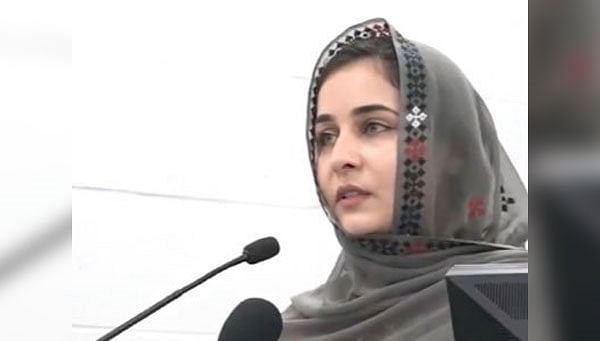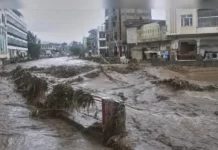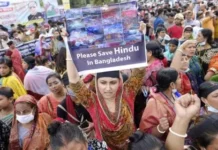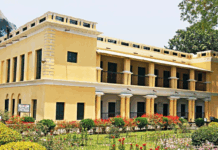TORONTO: An online signature campaign has been launched to demand justice for Karima Baloch, a human rights activist who was found dead mysteriously early this week in a lake in Toronto city.
As of now, over 350 activists, journalists, academics, intellectuals and concerned citizens of the world have signed the collective appeal asking Toronto police to further investigate Karima Baloch’s death.
The Toronto police on December 23 termed the death of Karima Baloch, a “non-criminal death”, but the family and friends are demanding a thorough investigation into the case. Baloch had campaigned vigorously against the disappearances and human rights violations in the troubled Balochistan province of Pakistan.
“We launched the Justice for Karima Baloch collective to urge the Canadian authorities to further investigate Karima’s death and consider the context as it cannot be ignored. The pattern of Pakistani activists especially the Baloch being abducted, killed, and dumped in mysterious conditions in Pakistan was already worrying,” says Taha Siddiqui, a Pakistani journalist in exile living in Paris since 2018 after surviving a kidnapping and possible assassination attempt on his life in Pakistan.
Siddiqui, one of the main campaigners behind the Justice for Karima Baloch Collective added, “Now we are seeing mysterious deaths abroad too and that has raised fears among the Pakistani exiled community, of not just the involvement of Pakistani security agencies, but also that of China, given its interests in Balochistan – the region where both activists who turned up dead belonged to.”
He told ANI, “The statement is collecting maximum signatures (350+ now) until the weekend and will then send the endorsed statement to Canadian authorities, UN bodies and other concerned organisations”.
Baloch was the first-ever woman President of the Baloch Students Organisation (BSO-Azad), one of the largest student bodies in Balochistan.
Baloch was also a member of the Baloch National Movement. She was named as one of the world’s 100 most inspirational and influential women in 2016 by the British Broadcasting Corporation (BBC) for her courage and bravery.
Baloch through her political activism had been an inspiration for the Baloch young women.
She changed the face of the Baloch struggle for human rights opening new doors of political leadership for young Baloch women.
After moving out of the country for her safety to Canada, she continued raising her voice against the serious human rights violations in Balochistan, including (enforced) disappearances of people, arbitrary arrests, torture and extrajudicial killings. Baloch was a strong critic of the “Kill and Dump” policy of Pakistani state authorities in Balochistan.
In exile, she continued to receive threats for her activism from Pakistan security agencies, proof of which is available with her husband and other family members. Then her uncle was taken away in Pakistan, and her mother was told that he will be only released if she stopped her activism.
When she refused to do so, her family received the mutilated body of her uncle. Previously, other members of Baloch’s family have been abducted and killed too – including her parent’s siblings.
Karima’s mysterious death is also alarming because it is not the first this year. Earlier in May 2020, Sajid Hussain, a journalist who wrote about human rights violations in Balochistan, was found dead in a river in Sweden, after disappearing for two months. Like Karima, he had also sought asylum after threats to his life in Pakistan.
Unfortunately, in both cases, the police have been not very forthcoming with details and have called them either accidental deaths or suicide, although there are ample reasons to consider otherwise.
Soon after the news of the death of Karima Baloch, troll armies of Pakistani security agencies started character assassination of Baloch, and even celebrated her death as their success and threatened other Pakistani exiled activists saying they are next.
Another telling incident was when verified social media accounts in a public Twitter conversation with a Pakistan Army serving general, General Asif Ghafoor hinted at forming a Pakistani version of “Bozkurtlar”, a Turkish assassin group that kills dissidents at home and abroad.
Also, General Pervez Musharraf, former Pakistani dictator gave a television interview a few years ago, where he spoke about killing Pakistani dissidents abroad. Chaudhry Nisar, Pakistan’s former interior minister has also revealed in an interview that the same general was contemplating the assassination of Altaf Husain, a prominent Pakistani political leader living in exile in London. (ANI)







